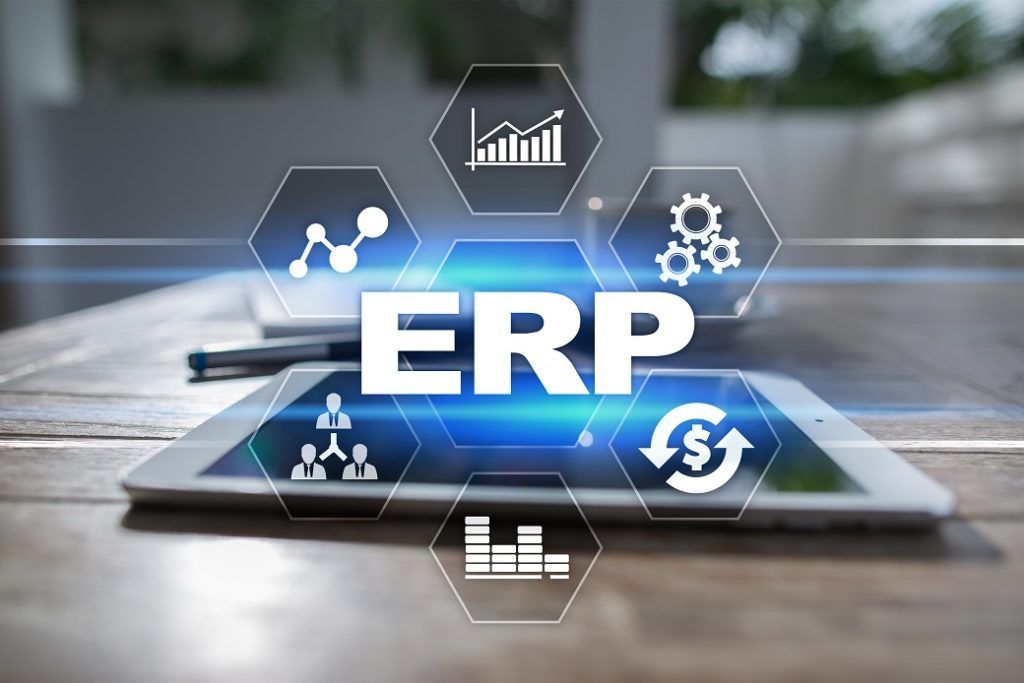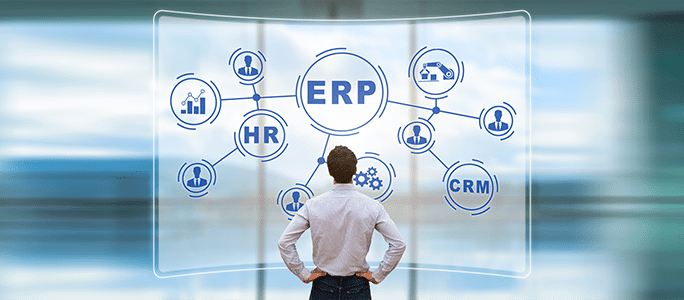In light of the significant development in the business environment, large companies have become in urgent need of adopting integrated systems to improve operational efficiency and make strategic decisions based on accurate data. The most prominent of these systems are: management accounting programs and enterprise resource planning (ERP) systems. Integrating these two systems helps provide a comprehensive financial and operational picture, which enhances the organization's ability to plan, monitor, and analyze financially.

What is management accounting software?
Management accounting is a branch of accounting that aims to provide financial and non-financial information to senior management to assist them in planning, directing, controlling, and making strategic decisions. It differs from financial accounting, which focuses on preparing external reports, as management accounting is concerned with internal reports, cost analysis, budgets, deviation analysis, and financial forecasting. Therefore, management accounting through accounting software relies heavily on the quality and availability of data, which makes ERP systems an ideal tool to enhance their effectiveness.
Management Accounting Program Jobs
Management accounting is an internal analytical tool used to support management in making decisions related to cost, pricing, productivity, and budgeting. The functions of the management accounting program include:
- Cost analysis.
- Preparing planning budgets.
- Financial forecasting.
- Analyze profitability by product or department.
- Submit performance reports.
ERP system concept
An ERP system is an integrated enterprise resource management system that encompasses all company departments, such as finance, production, procurement, human resources, and distribution. ERP software consolidates data and provides a comprehensive view of all processes, enhancing efficiency and transparency.
The role of ERP systems in supporting management accounting
ERP systems integrate data and processes within large companies into a single central database, meaning that all information related to production, sales, purchases, inventory, human resources, and finance is instantly available to management accountants. This integration enables management accounting to analyze actual costs compared to planned ones, predict financial needs, and study different scenarios based on accurate and up-to-date data. The system also contributes to reducing errors resulting from manual entry of information Which improves the quality of administrative decisions.
The importance of integrating management accounting with ERP
Integrating management accounting software into an ERP system provides a unified operating environment and achieves several key benefits:
1. Improving the quality of financial and administrative information
When management accounting is integrated with ERP systems, financial data and management reports are generated from a standardized and accurate source, reducing human error that may result from manual entry or repetitive data processing. This integration of accounting software and ERP allows access to real-time information, helping managers make decisions based on up-to-date and factual data, rather than relying on reports that may be late or incomplete.
2. Enhancing analysis and forecasting capacity
Advanced ERP systems support statistical analysis and financial modeling tools, giving management accounting more powerful tools for predicting future financial performance and analyzing trends. Management accountants can use historical and current ERP data to estimate costs, identify performance deviations, and develop more accurate and realistic financial strategies.
3. Integration of processes between different departments
The integration between management accounting and ERP contributes to linking different departments within an organization, such as procurement, inventory, production, and human resources, with the financial system, and this linkage provides a comprehensive view of all activities, allowing a deeper understanding of operational costs, identifying low-performing positions, and proactively addressing deficiencies.
4. Reducing operational costs
Relying on ERP allows management accounting to reduce the need for paperwork and manual work, reduce the time spent collecting and analyzing data, and allows accurate monitoring of costs in real time, which helps in early detection of excess expenses or financial waste, and then proposing immediate measures to rationalize expenses and achieve operational efficiency.
5. Support strategic decision making
By combining ERP and management accounting, senior management can obtain multidimensional analytical reports that include revenues, costs, profitability, and performance indicators. These reports, provided by the best accounting software, enable strategic decisions to be made based on data, such as opening new branches, modifying production plans, or improving pricing based on real performance rather than assumptions.
6. Improve internal control and risk management
Integrated systems between management accounting and ERP enable tracking of every financial transaction or operational process, enhancing internal control and reducing the possibility of fraud or unintended errors. Automatic alarm mechanisms can also be built in the event of budget overruns or poor performance, helping to reduce operational and financial risks.
7. Increase transparency and regulatory compliance
This merger supports companies' ability to comply with local and international accounting standards, such as IFRS or GAAP, by preparing accurate and integrated financial reports that can be easily audited. It also enhances the organization's credibility with investors and regulators, contributing to improving its market reputation and increasing financing and investment opportunities.
8. Facilitating budget preparation and performance monitoring
ERP systems allow for the creation of detailed budgets by department or project. Actual performance can be automatically tracked against planned budgets. The best management accounting software leverages these capabilities to assess resource efficiency and provide accurate recommendations on adjustments needed to improve performance and achieve financial objectives.
9. Supporting institutional growth and expansion
When management accounting is integrated with ERP, an organization is easily prepared for geographic or sectoral expansion. A centralized system can process multiple data from different branches simultaneously, ensuring a uniform level of financial control and analysis even under rapid growth, thus maintaining stable financial and administrative performance.
10. Enhancing work flexibility and real-time decision-making
Embedded systems provide access to reports and data from anywhere, anytime, especially with the use of cloud systems. This enhances the ability of management accountants and executives to make quick and proactive decisions based on real-time indicators, giving an organization a competitive advantage in a changing and fast-paced business environment.
Conclusion:
Integrating management accounting software with enterprise resource planning (ERP) systems is a strategic step that major companies seek to take to enhance operational efficiency and accuracy of financial information. This integration between the best ERP software and management accounting software can provide a comprehensive and immediate view of financial and operational performance, through the integration of data between different departments (such as production, inventory, sales, and human resources).
Other topics
Fekrait’s Software for Restaurant and Coffee Shops Management
Fixed Assets And Custody Management System
reference:
1. << Management Accounting>>, businessnewsdaily
2. <<Sage Business Cloud Accounting Review and Pricing>>, business

Add New Comment